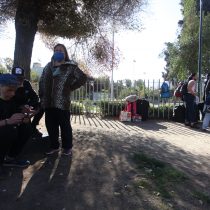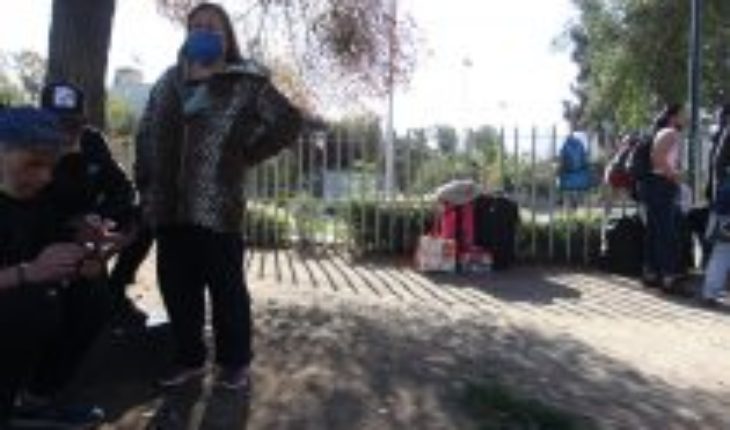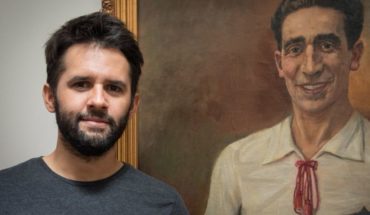
34 years ago, Los Prisioneros synthesized in a song the feeling of millions of Chileans. Today, many continue to move to the rhythm of “The Dancing of TheOverOvers.” The social outburst of October 18 last year (18-O) was a kind of scream contained in decades. Within all the analyses that can be done, this explosion showed that our country lived in a mirage (not an oasis) and that we suddenly awakened to another reality.
The COVID-19 pandemic has again remeceived us as we were reminded of the 18-O. Again the idea arises of the no one, those who are left over in the dance. The most vulnerable segments without an adequate support network remain the same: low classes and no opportunities. But this group is joined by a guest to the dance: the migrants.
According to data from the National Institute of Statistics, INE, as of 2019, there are about 1.5 million migrants residing in our national territory, the following being the countries that contribute to this migration flow: Venezuela (30.5%), Peru (15.8%), Haiti (12.5%), Colombia (10.8%) Bolivia (8.0%).
This increase has been positioning itself in the workforce that presents this new migration, a workforce that often lacks employment contracts, presents deplorable working conditions (without insurance and rights to protect them), informality of work and, given the health and hygiene contingency of these days, without protection to carry out their work and exposed to contagion.
The main items concentrated in this labour force are presented in the following areas: Trade (18.1%); Other occupations (16.9%); Household activities (14.0%); Accommodation and food services (12.4%) Manufacturing (9.3%).
This workforce concentrated in these areas presents multiple deficiencies that show the fragility and lack of representation that this group shows in these years. The irresponsibility and lack of political will of governments on duty for not legislating and promoting public policy in line with the needs of migrants increases this lack of representation and exacerbates an unsustainable reality of inequality and lack of real opportunities for these groups of foreign citizens.
In the face of the crisis, for example, the government has decreed an emergency economic plan for Chileans. That is, it excludes migrants. In addition, the requirements are identity cards and social registration of households, issues that most of those who need access to that aid, even those with their regular situation, do not have. On the other hand, the Employment Protection Act does not take into account countless informal jobs, such as car car parkers, street vendors, home consultants, etc., etc., all without a contract and therefore without the possibility of accessing cessation insurance.
We add to the above episodes that have violated the rights of foreign citizens and that demonstrate a symptom that we have discussed in previous paragraphs: the condition in which thousands of migrants live in our country, under an inequality that affects them in all areas, without a support network that provides them with collaboration and with a health and hygiene crisis that increases , painfully, this inequality.
For these and other reasons, migrants join today in “The Dance of those who are left over”, forced to work in quarantine, who are asked to social estrange when they live overcrowded, without access to bonds or aid of the state, inhabiting lost corners of the city, from where the voice of Jorge González is heard, who says: “Join the dance of those who spare”.
The content poured into this opinion column is the sole responsibility of its author, and does not necessarily reflect the editorial line or position of El Mostrador.





